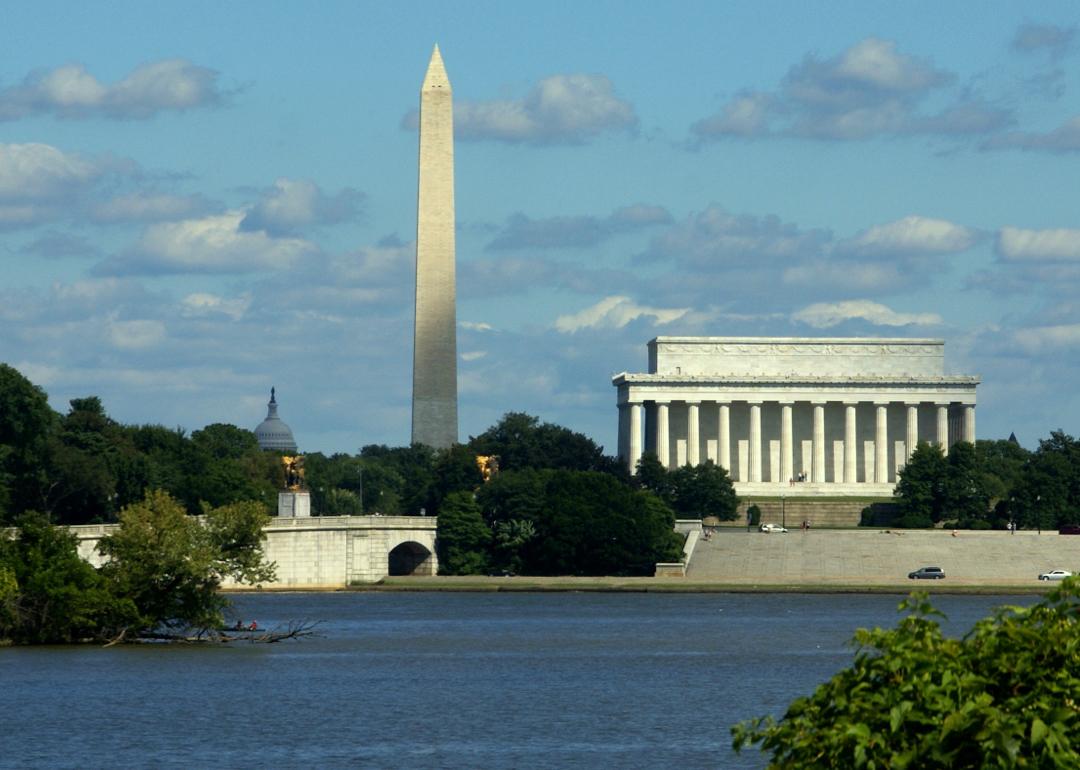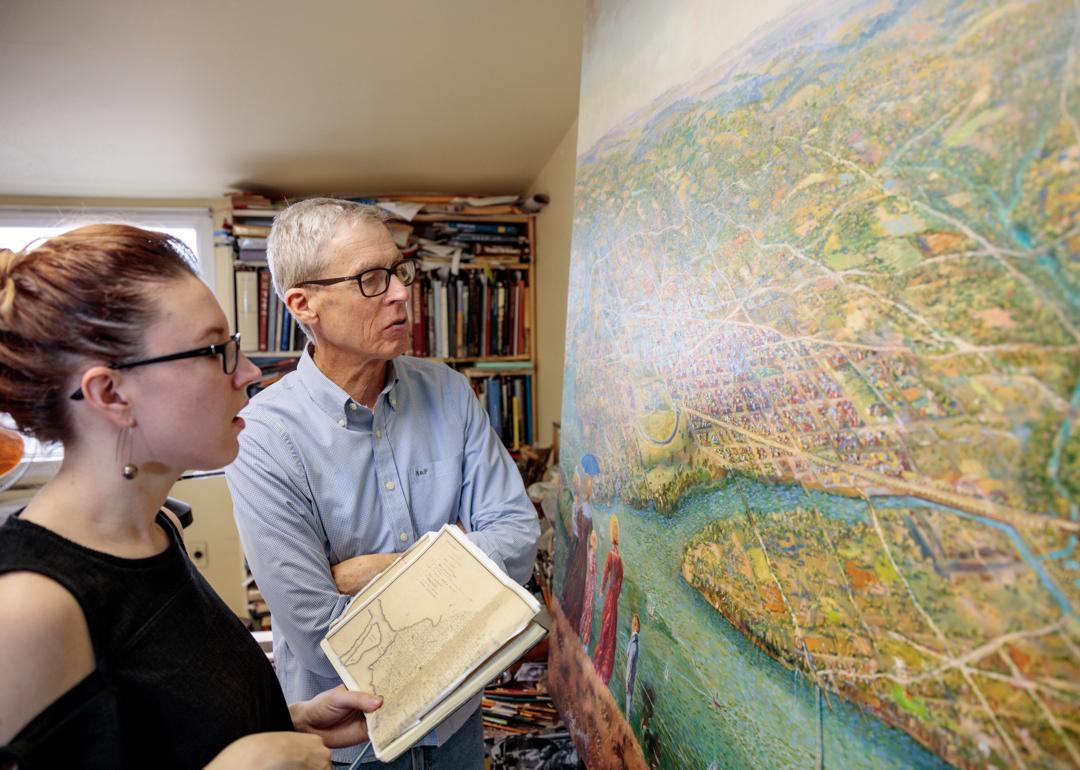Classical Washington
May 6-November 18, 2023
Public architecture and monuments across the city of Washington reveal the influence of the ancient world. Organized with GW professor Elise Friedland, this exhibition demonstrated how the Founding Fathers and subsequent government leaders favored Greek and Roman styles to evoke America’s political roots.
About the Exhibition
Washington, D.C., is like no other city in the United States. A Greek Doric temple houses a colossal cult statue (the Lincoln Memorial). A Roman triumphal arch monumentalizes the main train depot (Union Station). Roman equestrian statues celebrate victorious American generals (Andrew Jackson in Lafayette Plaza).
Classical Washington surveyed the role of Greek and Roman art and architecture in the planning, building and decorating of America’s capital city. The Founding Fathers looked to ancient Rome as a political model for their new republic and sought to build a “New Rome” on the Potomac. As their successors turned toward Greek democratic forms of government, they introduced Greek influences to Washington's architectural and sculptural landscape.
Focusing on major federal buildings, public sculpture and painting from the U.S. Capitol to the Jefferson Memorial, this exhibition identified the ancient models that inspired D.C. architects and artists, and explored how these classical echoes helped establish the new nation as a sophisticated player on the world stage.
This exhibition was organized by the Albert H. Small Center for National Capital Area Studies with support from the Albert and Shirley Small Family Foundation. It was based on Dr. Friedland's current book project, Classical Washington, for which she received a National Endowment for the Humanities Public Scholar Fellowship. Any views, findings, conclusions or recommendations expressed in this project do not necessarily reflect those of the National Endowment for the Humanities.
Exhibition Programs
D.C. Mondays: Classical Washington
Video Recording
Interpreting L'Enfant's Plan
Video Recording
Edward Sachse, View of Washington City, 1871, AS 2
Congressional Library, Washington, D.C., T. P. & Co., New York, c. 1900, AS 442
Mill’s Colossal Equestrian Statue of General Andrew Jackson, Casimir Bohn, Philadelphia, 1853, AS 131
The Washington Monument, Louis P. Griffith, 1885, AS 482









